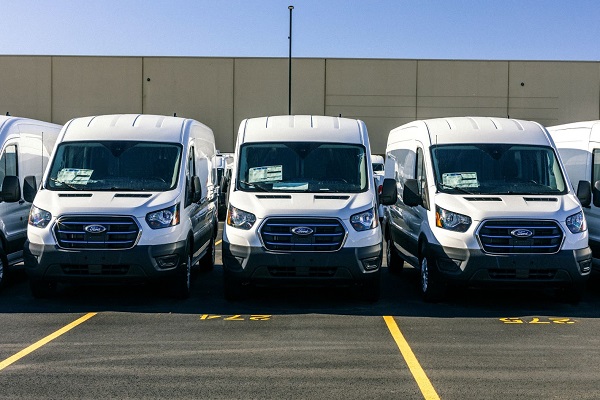
By Tanner Lee, Kingbee
October 11, 2023
Fleet managers, brace for impact! The United Automobile Workers are on strike, and everyone in the industry is buggin’ out. A prolonged strike could throw a wrench into ordering cycles, and fleets will once again need to get creative so they can replace aging units and acquire new vehicles to grow the company.
Striking autoworkers want to be paid more, and they want to be paid more equally. Other demands include a four-day work week, union representation at new battery plants, and a restoration of pensions. It’s an historic and economically momentous time for the automotive industry, and the outcome of the strike negotiations has potentially profound implications for how the US tackles major issues like worker pay and the EV vehicle production.
 The Big 3’s pay counter-offers have fallen well short of the UAW’s 46% target. Stellantis proposed to boost wages by 14.5%, which the UAW rejected the same day as “deeply inadequate.” When Ford offered a 20% increase, the UAW said it “barely makes up for minimal past raises combined with high inflation.”
The Big 3’s pay counter-offers have fallen well short of the UAW’s 46% target. Stellantis proposed to boost wages by 14.5%, which the UAW rejected the same day as “deeply inadequate.” When Ford offered a 20% increase, the UAW said it “barely makes up for minimal past raises combined with high inflation.”
What Does the Strike Mean for Fleets?
The strike began at three locations, one for each company, with about 13,000 workers, and has since expanded to about 25,000 workers at 43 facilities across the country. The first two weeks of the strike resulted in an estimated $3.95 billion in economic losses.
So far, production has been halted at three assembly plants:
- Ford’s assembly plant in Wayne, Michigan, where it builds the Bronco
- Stellantis’s assembly complex in Toledo, Ohio, where it builds Jeeps
- GM’s Wentzville assembly, where they make midsize pickups and cargo vans
The UAW is expected to target additional factories in weeks to come if no agreement is reached. If there’s anything UAW president Shawn Fain likes more than wearing red shirts, it’s keeping the Big 3 on their toes. Nobody knows where the next walk-out will be. Fleet managers should make a Faustian bargain that the next walkout doesn’t occur in Kansas City, Missouri, where Ford builds its Transit vans, or in Saltillo, Mexico, where Promasters are built.
 Remember COVID? Some fleets still haven’t recovered from when dealership lead times were 8 months out and orders were being canceled faster than Roseanne Barr. A one-two punch on new vehicle availability caused by the strike could have fleet managers reconsidering their career choices.
Remember COVID? Some fleets still haven’t recovered from when dealership lead times were 8 months out and orders were being canceled faster than Roseanne Barr. A one-two punch on new vehicle availability caused by the strike could have fleet managers reconsidering their career choices.
Every day the strike continues will cause ripple effects for months. The Anderson Economic Forum, a Michigan-based think tank that specializes in the financial impact of labor strikes, estimates that for every week the workers are on strike, GM’s output would fall by 55,000 vehicles a week and Ford’s by about 65,000 a week.
To stay ahead of the headache, fleet managers have no choice but to stay proactive with their vehicle acquisitions instead of reacting to the latest strike shutdowns. Lower supply for dealerships means delayed ordering cycles, which could mean more accumulated maintenance costs, more downtime, and fewer new jobs.
How Kingbee Can Help
 Inevitably, when orders are delayed or canceled, Kingbee has upfitted vans immediately available to ship to your location. Kingbee complements your current vehicle acquisition strategy and offers a third avenue for procuring vehicles, alongside leasing and purchasing. In 3-4 weeks, you could have new vans that are wrapped with your company’s branding and upfitted with shelves and racks. Call today to see how we can help you meet your fleet goals.
Inevitably, when orders are delayed or canceled, Kingbee has upfitted vans immediately available to ship to your location. Kingbee complements your current vehicle acquisition strategy and offers a third avenue for procuring vehicles, alongside leasing and purchasing. In 3-4 weeks, you could have new vans that are wrapped with your company’s branding and upfitted with shelves and racks. Call today to see how we can help you meet your fleet goals.



